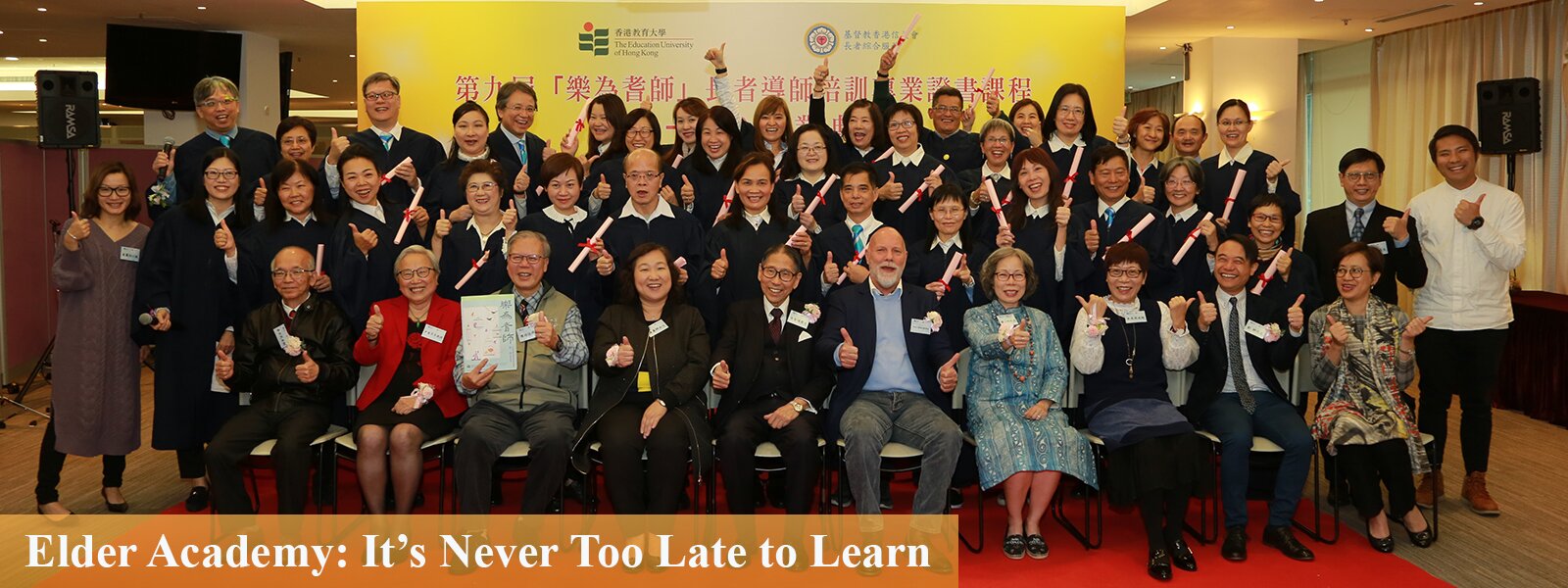Elder Academy: It's Never Too Late to Learn

The time-honoured image of retirement being inactive doesn’t have to be reality. Today, retirement can be productive and ‘intellectually active’. This is reflected in the work of the Elder Academy at The Education University of Hong Kong (EdUHK), which offers a learning pathway for retirees and opportunities to train instructors to teach elders; proving there’s no age limit to education.
The Elder Academy is at the forefront in promoting the concept of active ageing through elder learning. It has unique features, as it not only addresses the requirements of elders but also provides training and professional development for tutors and coordinators who serve elder learners. Professor Maureen Tam, Head of the Elder Academy and Professor at the Department of International Education, says this direction is in line with the University of the Third Age (U3A) movement in other developed countries, such as France and the UK. The U3A model enables retired members of the community to continue learning and share experiences with others.
Since EdUHK launched the pioneering Professional Certificate Programme in Lifelong and Elderly Education in 2000, in partnership with The Evangelical Lutheran Church of Hong Kong, the Academy has attracted a growing number of aspiring teachers of elders. Each year, it produces 40 graduates who are professionally trained to teach elders a variety of subjects, including calligraphy, sand painting, photography, heritage docent training, laughter yoga, tai chi and many others.
“People over 65 now make up 18 per cent of Hong Kong’s population,” says Professor Tam. This proportion will rise markedly to 36 per cent in 2064, or a total of 2.58 million people, according to demographic projections. To cater to the growing demand for elder learning, the programme is currently under review, with an aim to enrich and update the curriculum in order to better address future learning needs of an aging society.
Professor Tam says the fast-growing ageing population is a highly important issue for Hong Kong. She is pleased to see that more opportunities are now available for people in the third age group (aged 60-80) to plan and prepare for their life in retirement. However, services for the fourth age group (80 and above) have not kept pace; possibly hindered by the fact that this group has lower self-care ability and may have to stay in nursing homes.
Undeterred by such issues, Professor Tam says that with sufficient enabling technology, careful organisation and adequate support, it is perfectly possible for anyone, regardless of age, to continue learning. Now that it has been just over a decade since the Elder Academy was established, Professor Tam keeps exploring further elder learning opportunities beyond the confines of a classroom. “Learning in this era of active ageing has to go ‘4As’ – meaning one can learn anywhere, anytime, anything and from anyone. There should be no limits to the pursuit of knowledge!”



